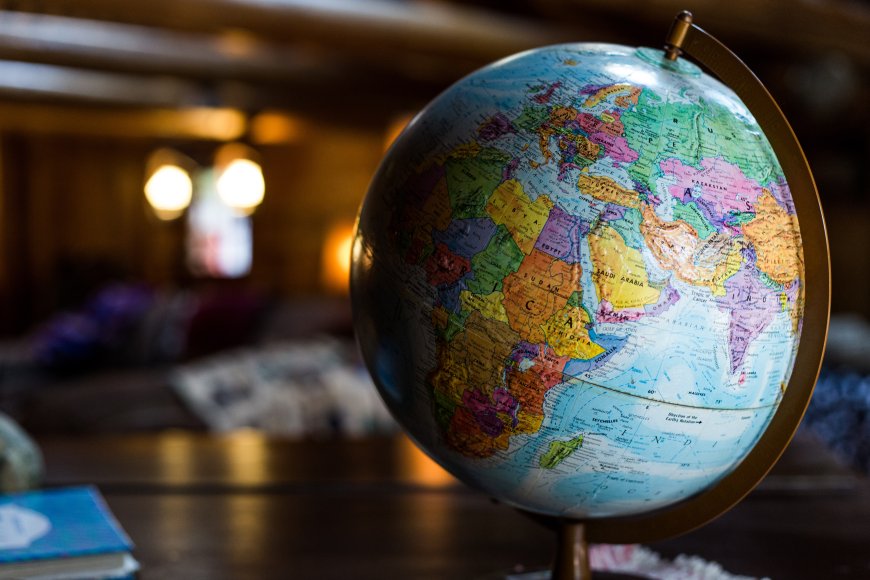Exploring the Intricate Connections Between People, Places, and the Environment in the Field of Human Geography
Discover the captivating field of human geography, where the relationships between people, places, and the environment are explored, offering an engaging and relevant academic choice for university study and a wide range of career paths.

Human Geography: Unraveling the Puzzles of Our World Geography is an enthralling academic discipline that examines the complex relationships between people, places, and the environment. For young individuals pondering their university studies or anyone intrigued by the intricate connections that shape our world, human geography offers a dynamic and enriching field to explore. In this article, we will delve into the diverse branches of human geography, its various applications, and the career opportunities it presents, demonstrating why this discipline is both intellectually stimulating and practically significant.
The Diverse Branches of Human Geography: Uncovering the Patterns of Human Life Geography encompasses a wide range of sub-disciplines, each focusing on different aspects of the connections between people, places, and the environment. Some of the key areas within human geography include:
- Cultural geography: This branch of human geography investigates the spatial aspects of culture, exploring how cultural practices, beliefs, and values are shaped by and shape the physical and social environments in which they occur.
- Economic geography: This sub-discipline examines the spatial distribution of economic activities and resources, including the production, consumption, and exchange of goods and services.
- Political Geography: This area of study focuses on the spatial dimensions of political processes, such as the organization and distribution of political power and the territorial boundaries that define states and nations.
- Population geography: This sub-field investigates the spatial patterns and dynamics of human populations, including migration, fertility, mortality, and demographic change.
- Urban geography: This branch of human geography explores the spatial organization and dynamics of cities and urban areas, examining issues such as land use, housing, transportation, and social inequality.
The Applications of Human Geography: From Local Communities to Global Systems
The insights gained from human geography research have far-reaching implications, touching on virtually every aspect of human life. From understanding the cultural practices that shape our identities to exploring the economic forces that drive global development, human geography provides the tools needed to make sense of the world around us.
Some key areas in which the principles of human geography can be applied include:
- Urban and regional planning: Human geographers can contribute their expertise to the design and development of sustainable and equitable communities, helping to shape the built environment and manage resources effectively.
- Environmental management and conservation: With their understanding of the complex relationships between people, places, and the environment, human geographers can inform policies and practices that promote environmental sustainability and stewardship.
- International development and humanitarian assistance: Human geographers can apply their knowledge of spatial patterns and processes to address pressing global challenges, such as poverty, inequality, and conflict.
- Public policy and governance: By examining the spatial dimensions of social, economic, and political issues, human geographers can contribute to the development of evidence-based policies and decision-making processes at various levels of government.
- Business and industry: Human geographers can excel in various roles within the private sector, such as market research, location analysis, or supply chain management, leveraging their understanding of spatial patterns and relationships to inform business strategies.
Career Opportunities in Human Geography: Shaping the World of Tomorrow
The study of human geography opens the door to a wealth of career opportunities, enabling graduates to apply their knowledge and skills in a variety of professional contexts. Some potential career paths for human geography students include:
- Academia and research: Human geography graduates can pursue advanced degrees and careers in research or teaching at universities, research institutions, or non-profit organizations.
- Urban and regional planning: With specialized training and certification, human geography students can work as professional planners, helping to shape the development of communities and regions.
- Environmental management and conservation: Graduates with a background in human geography can find rewarding careers in environmental organizations, government agencies, or consulting firms, working to promote sustainable and responsible management of natural resources.
- International development and humanitarian assistance: Human geography students can apply their skills to effect change through careers in international organizations, non-governmental organizations, or government agencies, working on projects that address global challenges and improve the lives of people around the world.
- Business and industry: With their understanding of spatial relationships and patterns, human geography graduates can excel in various roles within the private sector, such as market research, location analysis, or supply chain management.
Decoding the Human Landscape: Why Human Geography Matters
In an increasingly interconnected and rapidly changing world, the insights provided by human geography are more critical than ever. By studying this discipline, young people can develop a comprehensive understanding of the complex relationships between people, places, and the environment, empowering them to make informed choices and contribute to the betterment of their communities and society as a whole.
If you're considering your university studies and searching for a field that combines intellectual challenge with practical relevance, human geography may be the perfect choice. As you explore the diverse branches of this discipline, apply its principles to real-world situations, and embark on rewarding career paths, you will not only deepen your understanding of the intricate connections that shape our world but also make a lasting impact on the lives of others. So, dive into the captivating world of human geography and unravel the puzzles of our world.
Disclaimer: The image(s) featured in this article are for illustrative purposes only and may not directly depict the specific concepts, situations, or individuals discussed in the content. Their purpose is to enhance the reader's understanding and visual experience. Please do not interpret the images as literal representations of the topics addressed.
What's Your Reaction?












































































































